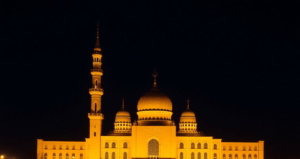YSRCP MP PV Mithun Reddy Slams Waqf Bill: A Constitutional Attack That Could Disenfranchise Minorities – 5 Key Concerns
YSRCP MP PV Mithun Reddy has strongly opposed the Waqf Amendment Bill, claiming it violates the Constitution and ignores the concerns of the Muslim community. He criticized the inclusion of non-Muslim members in Waqf Boards and the proposed reduction in financial contributions, warning it could undermine the Board’s stability. Reddy also accused the TDP of failing to protect Muslim interests. Opposition MPs, including Congress leader Gaurav Gogoi, echoed similar concerns, describing the bill as a threat to the Constitution’s core principles.
Gogoi argued that the bill would harm minorities, divide society, and increase legal disputes. He also questioned the government’s interference in religious practices, particularly with the requirement that a person must prove five years of Islamic practice to declare Waqf property. Both Reddy and Gogoi highlighted the bill’s potential to create divisions within Indian society.

YSRCP MP PV Mithun Reddy Slams Waqf Bill: A Constitutional Attack That Could Disenfranchise Minorities – 5 Key Concerns
YSR Congress Party (YSRCP) MP PV Mithun Reddy has raised strong objections to the proposed Waqf Amendment Bill, 2025, calling it a threat to constitutional principles and a disregard for the Muslim community’s concerns. During a heated debate in the Lok Sabha, Reddy highlighted that major Muslim organizations—including the All India Muslim Personal Law Board, Jamiat Ulama-i-Hind, and Jamaat-e-Islami Hind—have unanimously opposed the bill, labeling it discriminatory and harmful to minority rights.
Key Criticisms of the Bill
Reddy specifically criticized provisions in Sections 9 and 14 of the bill, which allow non-Muslim members to join Waqf Boards. He argued that this undermines the autonomy of these bodies, traditionally managed by Muslim representatives to oversee religious and charitable properties. Additionally, he flagged an amendment to Section 72(1), reducing the annual financial contribution to Waqf Boards from 7% to 5% of a property’s income. According to Reddy, this cut could destabilize the Board’s finances, limiting its ability to maintain religious sites, fund educational initiatives, or support community welfare programs.
Political Standoff and Minority Rights
Reddy also took aim at the Telugu Desam Party (TDP), accusing it of staying silent on the issue. He urged voters in Andhra Pradesh to differentiate between the YSRCP—led by Chief Minister YS Jagan Mohan Reddy—which he claims prioritizes minority welfare, and the TDP, which he alleges has neglected Muslim interests. His remarks reflect broader political tensions, with opposition parties framing the bill as part of a larger agenda to marginalize minorities.
Opposition Parties Condemn the Bill
The bill has faced fierce resistance from the INDIA bloc and Congress, who argue it violates constitutional safeguards for minorities. Congress MP Gaurav Gogoi launched a sharp critique during the Lok Sabha debate, accusing the Narendra Modi-led government of using the legislation to “weaken the Constitution,” stigmatize minorities, and sow societal divisions. Gogoi dismissed claims by Union Home Minister Amit Shah and Minority Affairs Minister Kiren Rijiju that a Joint Parliamentary Committee (JPC) had thoroughly reviewed the bill. He asserted that no meaningful clause-by-clause discussion occurred and that opposition amendments were ignored.
Gogoi also questioned the expertise of JPC members, stating many lacked familiarity with Waqf laws, leading to a superficial review. He warned that the bill’s requirement for individuals to prove they have “practiced Islam for five years” before declaring a property as Waqf sets a dangerous precedent. This clause, he argued, risks government overreach into religious affairs and could later target other minority groups.
Concerns Over Legal Chaos
Another key objection revolves around the bill’s potential to trigger legal disputes. Gogoi emphasized that amendments to Waqf laws should aim to resolve existing conflicts, not create new ones. For instance, altering the process for declaring Waqf properties or appointing board members could lead to prolonged court battles, further straining an already overburdened judicial system.
Divisions Within the NDA
While the National Democratic Alliance (NDA) officially supports the bill, allies have expressed reservations, signaling internal disagreements. This lack of consensus within the ruling coalition highlights the contentious nature of the legislation. Opposition MPs, meanwhile, allege the government is using the bill to divert attention from its failures on economic and social issues.
Broader Implications
The debate has intensified concerns about the government’s approach to minority rights. Critics argue that the bill’s provisions—such as diluting the Waqf Board’s financial independence and inserting bureaucratic hurdles—reflect systemic efforts to disempower Muslim institutions. Reddy and Gogoi both stressed that Waqf properties, meant to serve community welfare, could fall into neglect or misuse if the Board’s authority is eroded.
Conclusion
The Waqf Amendment Bill has become a flashpoint in India’s ongoing debate over secularism and minority rights. With opposition parties uniting against it and cracks emerging within the NDA, the government faces an uphill battle to pass the legislation. For now, the controversy underscores deeper anxieties about religious freedom, constitutional integrity, and the politicization of community-based institutions. As the Lok Sabha deliberates, the outcome will likely shape not only the future of Waqf governance but also the broader narrative of inclusivity in Indian democracy.
Check out TimesWordle.com for all the latest news
You must be logged in to post a comment.